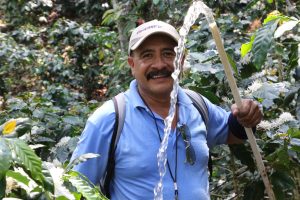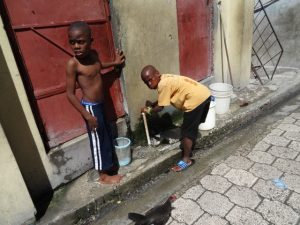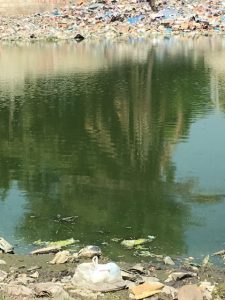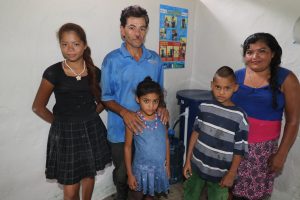With less than a month until World Water Day 2019, we wanted to take a moment to talk more about this internationally recognized day that is growing in both popularity and activism.
What is World Water Day?
World Water Day is an internationally recognized day held annually on March 22nd. Started in 1993, the celebrated day provides the opportunity for people everywhere to “learn more about water-related issues, be inspired to tell others, and take action to make a difference.” (source)
What is the 2019 Theme?
The theme this year is Leaving No One Behind, which is in alignment with the United Nations’ 2030 Sustainable Development Goals (SDG). It is also in alignment with PWW’s vision and mission!
Click here to learn more about how PWW is working toward SDG-6, related to safe water and sanitation for all.
What is the current situation?
 Today, 2.1 billion people on our planet live each day without reliable access to safe water in their homes.
Today, 2.1 billion people on our planet live each day without reliable access to safe water in their homes.
In 2010, the United Nations formally recognized “the right to safe and clean drinking water and sanitation as a human right that is essential for the full enjoyment of life and all human rights.”
“Whoever you are, wherever you are, water is your human right. Access to water underpins public health and is therefore critical to sustainable development and a stable and prosperous world. We cannot move forward as a global society while so many people are living without safe water.” (source)
 Across our planet, lack of sustainable access to safe water is a very real problem with increasingly widespread impact.
Across our planet, lack of sustainable access to safe water is a very real problem with increasingly widespread impact.
The following list highlights just some of the recent facts available regarding the current state of access to safe water on our planet. (source)
- 2.1 billion people live without safe water at home.
- One in four primary schools have no drinking water service, with pupils using unprotected sources or going thirsty.
- More than 700 children under five years of age die every day from diarrhea linked to unsafe water and poor sanitation.
- Globally, 80% of the people who have to use unsafe and unprotected water sources live in rural areas.
- Women and girls are responsible for water collection in eight out of ten households with water off-premises.
- Around 159 million people collect their drinking water from surface water, such as ponds and streams (photo is a water source in Cité Soleil, Haiti).
- The wealthier generally receive high levels of WASH services at (often very) low cost, whereas the poor pay a much higher price for a service of similar or lesser quality.
- 700 million people worldwide could be displaced by intense water scarcity by 2030.
What can we do?
These facts may leave you feeling overwhelmed, wondering what can possibly be done to help. While this problem is indeed significant, there are actions you can take to help create change.
- Educate yourself. Learn more about the situation with water water on our planet. With knowledge comes ideas and solutions.
- Engage others. Talk among your community of co-workers, friends and family members. These conversations can lead to change.
- Be mindful about your own water usage. While many of us feel insulated from the water crisis today, without changing our relationship with water, we are all susceptible of being impacted down the road. Think about how, when, and where you can proactively preserve water…reduce your time in the shower or while brushing your teeth, washing dishes, washing cars, and so forth. Think about the variety of instances in which you can save water and, then, take action.
- Get involved. Find organizations that are working proactively to create change. There are so many that taking on the global water crisis, with a wide variety of focus areas, all working to bring much-needed solutions.
 Pure Water for the World is working tirelessly to bring sustainable safe water solutions to marginalized populations in Haiti and Central America, reaching children and families who are suffering and dying simply because they lack access to this most basic human right. PWW is also committed to sharing knowledge and expertise by training other organizations and businesses, empowering them with the tools and understanding about how to effectively implement sustainable safe water programs.
Pure Water for the World is working tirelessly to bring sustainable safe water solutions to marginalized populations in Haiti and Central America, reaching children and families who are suffering and dying simply because they lack access to this most basic human right. PWW is also committed to sharing knowledge and expertise by training other organizations and businesses, empowering them with the tools and understanding about how to effectively implement sustainable safe water programs.
In the coming days, we’ll be sharing activities planned in celebration of World Water Day 2019. If you want to help reach the goal of “leaving no one behind” please consider making a donation. Just $25 brings a lifetime of clean water for one child; $300 changes the future for an entire family. Donate here.
